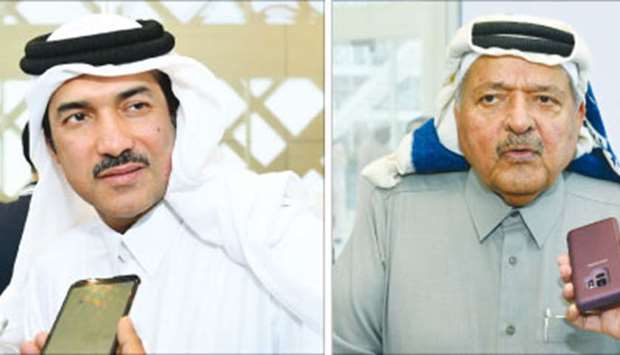Qatar has emerged as a robust and self-sufficient economy despite the land, air, and sea blockade imposed on the country by four of its Arab neighbours more than two and a half years ago, according to HE the Minister of State Ahmad bin Mohamed al-Sayed.
Similarly, al-Sayed, who is also chairman of Qatar Free Zones Authority (QFZA), had pointed out earlier that many Qatar-based companies and manufacturing facilities in the country had strived to expand their operations to meet the needs of the local market.
Despite the blockade, al-Sayed said, Qatar remains an attractive investment destination to many major international companies. On the sidelines of the Doha Forum held in December 2019, seven leading firms signed their licences with QFZA.
During the event, al-Sayed witnessed the signing of licences of Wasco Coatings, Volkswagen, China Harbor, Unistrong, Inventus Power, Gaussin, and Thales Group. These companies, the QFZA said in a statement, will contribute significantly to the strength of the free zones and in turn to the growth and development of Qatar’s economy.
The companies joined a diversified group of more than 50 firms establishing operations in Qatar Free Zones, which have invested a total of more than QR1.5bn, the QFZA statement continued.
“We have been working closely with companies around the world to demonstrate all that Qatar, and Qatar Free Zones specifically, has to offer; this announcement marks the end of a very successful year for us,” al-Sayed said.
After the QFZA signing ceremony, a panel discussion that followed highlighted that because of Qatar’s focus on new technologies, connectivity, and ensuring the transformation of various industries, the country has become a leading knowledge partner for business transformations and for many international companies.
“From a business standpoint, Qatar is teaming up with global and national champions…the country also has the wealth and investment platform, so we can help you to open new doors for your business…the country is ready to welcome international investments,” al-Sayed stressed.
Just last week, al-Sayed also signed a memorandum of understanding (MoU) with the Qatari Businessmen Association (QBA) chairman HE Sheikh Faisal bin Qassim al-Thani to help achieve Qatar’s economic and diversification goals.
The MoU is also geared to benefit from the services provided by the two economic institutions to the local and external investor to enhance investments and support the economic development of the country.
In a statement, Sheikh Faisal said, “Since its inception, the QBA has been seeking to strengthen its partnership with the public sector to serve the national economy by supporting the State in its efforts to diversify sources of income and achieve sustainable comprehensive development by 2030, and attracting foreign investment and advanced technology, localising highly-competitive industries, and benefiting from the privileges provided by the government as the investment climate is very appropriate and great opportunities are available to turn the country into a real workshop.”

HE al-Sayed and HE Sheikh Faisal: Qatar has emerged a robust economy despite the blockade. PICTURES: Ram Chand

